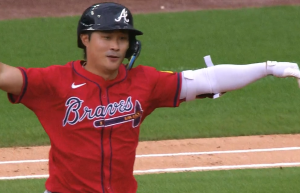Russian President Vladimir Putin demanded and won his parliament's approval on Saturday to invade Ukraine, where the new government warned of war, put its troops on high alert and appealed to NATO for help, the Associated Press reported.
Putin's open assertion of the right to send troops to a country of 46 million people on the ramparts of central Europe creates the biggest confrontation between Russia and the West since the Cold War, according to the AP.
Prime Minister Arseniy Yatseniuk, leading a government that took power after Moscow's ally Viktor Yanukovych fled a week ago, said Russian military action "would be the beginning of war and the end of any relations between Ukraine and Russia," the AP reported.
Acting President Oleksandr Turchynov ordered troops to be placed on high combat alert. Foreign Minister Andriy Deshchytsya said he had met European and U.S. officials and sent a request to NATO to "examine all possibilities to protect the territorial integrity and sovereignty of Ukraine," according to the AP.
Putin's move was a direct rebuff to Western leaders who had repeatedly urged Russia not to intervene, including U.S. President Barack Obama, who just a day before had held a televised address to warn Moscow of "costs" if it acted, the AP reported.
Putin said his request for authorization to use force in Ukraine would last "until the normalization of the socio-political situation in that country," according to the AP.
His justification is the alleged need to protect Russian citizens, the same reason he used to launch a 2008 invasion of Georgia, where Russian forces seized two breakaway regions and recognized them as independent, the AP reported.
Troops with no insignia on their uniforms but clearly Russian, according to the AP. Some in vehicles with Russian number plates have already seized Crimea, an isolated peninsula in the Black Sea where Moscow has a large military presence in the headquarters of its Black Sea Fleet and Kiev's new authorities have been powerless to stop them.
The Russian forces solidified their control of Crimea and unrest spread to other parts of Ukraine on Saturday, the AP reported.
Pro-Russian demonstrators clashed, sometimes violently, with supporters of Ukraine's new authorities and raised the Russian flag over government buildings in several cities, according to the AP.
"This is probably the most dangerous situation in Europe since the Soviet invasion of Czechoslovakia in 1968," said a Western official on condition of anonymity, the AP reported. "Realistically, we have to assume the Crimea is in Russian hands. The challenge now is to deter Russia from taking over the Russian-speaking east of Ukraine."
Putin asked parliament to approve force "in connection with the extraordinary situation in Ukraine, the threat to the lives of citizens of the Russian Federation, our compatriots" and to protect the Black Sea Fleet in Crimea, the AP reported.
EU foreign affairs chief Catherine Ashton urged Moscow not to send troops, according to the AP. Swedish Foreign Minister Carl Bildt said this would be "clearly against international law".
Czech President Milos Zeman likened the crisis to the 1968 invasion of Czechoslovakia, the AP reported.
"Urgent need for de-escalation in Crimea," tweeted NATO Secretary-General Anders Fogh Rasmussen, according to the AP. "NATO allies continue to coordinate closely."
© 2025 HNGN, All rights reserved. Do not reproduce without permission.








